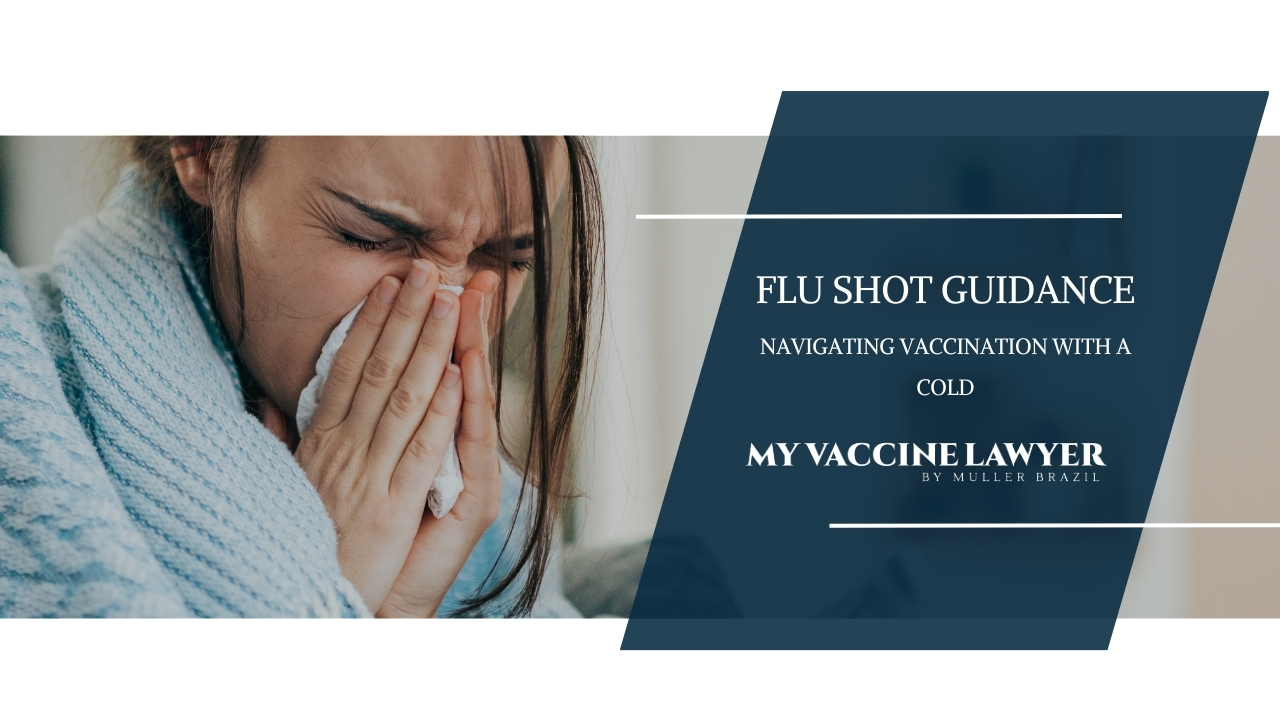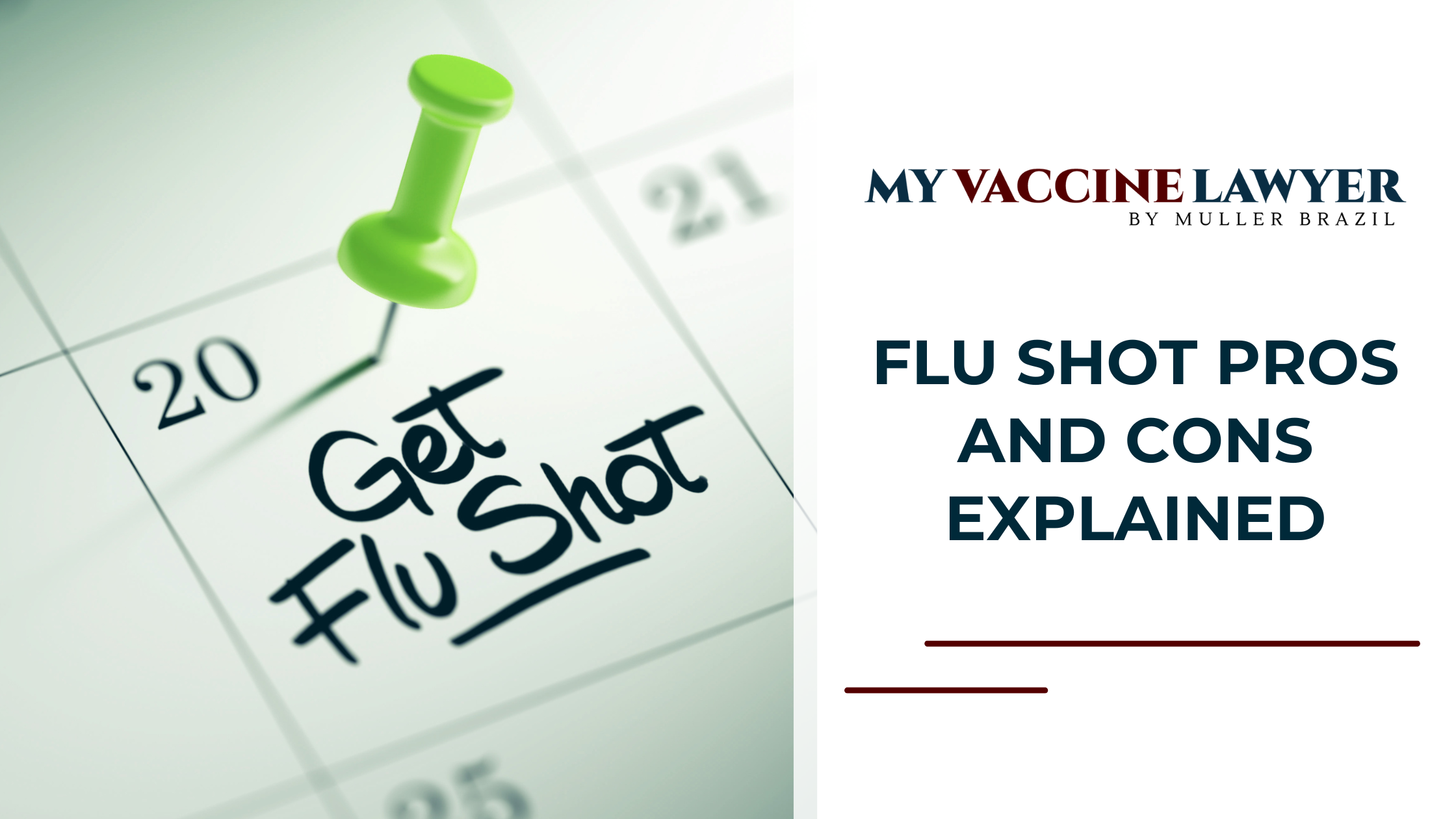The Best Flu Vaccine for Seniors
Vaccines have a powerful role in protecting against dangerous diseases, especially for older adults and individuals at high risk.
6 min read
Vaccine Injury Law Resources / Flu Shot / Flu Shot Pros and Cons: Should You Get Vaccinated?
 Paul Brazil
:
Mar 6, 2025 8:21:09 AM
Paul Brazil
:
Mar 6, 2025 8:21:09 AM
The flu shot helps prevent severe illness and hospitalizations, but some people may experience mild side effects or rare complications, making an informed choice important.
"The upside of the flu shot is that it can prevent many strains of the flu, which can be a debilitating and sometimes deadly disease. The downsides are that it typically prevents around 60-70% of flu strains, so it is still possible to get the flu after receiving the vaccination. Adverse effects are exceedingly rare but can happen." - Max Muller
Each year, flu season leads to tens of thousands of hospitalizations and severe illness, particularly among older adults, pregnant women, and individuals with weakened immune systems. The flu vaccine is widely recommended as the best bet for reducing the risk of flu-related hospitalizations and severe complications. However, some people hesitate due to concerns about potential drawbacks, side effects, and effectiveness.
Understanding the pros and cons of the flu shot can help you make an informed decision about flu vaccination.
The flu vaccine is a seasonal flu vaccine designed to protect against influenza viruses that are most likely to spread each flu season. It works by introducing influenza proteins into the body, which prompts the immune system to produce flu-targeting antibodies. If exposed to the influenza virus after vaccination, the immune response is faster and more effective, reducing the severity of illness.
There are two primary types of flu vaccination:
After receiving the annual flu vaccine, it takes the body up to two weeks to develop full protection. While the flu shot does not guarantee immunity, it significantly reduces the risk of severe flu complications, ICU admission, and flu-related deaths.
Take Control of Your Injury Today
The seasonal flu vaccine is typically available in the U.S. beginning in September, just before the start of peak flu season. Since flu viruses circulate at different times in various parts of the world, flu season differs between hemispheres:
In North America, flu season usually runs from October to May, with cases peaking between December and February. The Centers for Disease Control and Prevention (CDC) recommends getting vaccinated as soon as the flu vaccine becomes available to guarantee full protection before the virus spreads widely.
Since it takes up to two weeks for the body to build an immune response after flu vaccination, getting vaccinated early in the season helps reduce the risk of infection, flu-related hospitalizations, and severe flu complications.
The Centers for Disease Control and Prevention (CDC) recommends that everyone aged six months and older receive an annual flu vaccine, unless they have a medical reason to avoid it. Getting vaccinated is especially important for people at higher risk of developing severe flu complications, including:
For most people, the flu shot causes only mild discomfort, such as redness, swelling, or soreness at the injection site. Some individuals may experience low-grade fever, muscle aches, or fatigue, but these symptoms typically resolve within a day or two.
However, in some cases, some people may experience severe side effects from flu vaccination, including:
If you experience high fever, persistent body aches, or symptoms that worsen over time, it’s important to consult a healthcare professional immediately.
There are several types of flu vaccines, and the best option depends on age, health status, and personal preference. The most common options include:
A common misconception is that antibiotics can help treat the flu, but this isn’t the case. The flu virus is caused by influenza viruses, which means antibiotics, which target bacterial infections, are completely ineffective against it.
However, flu complications can sometimes lead to secondary bacterial infections, such as pneumonia, sinus infections, or ear infections. In these cases, healthcare providers may prescribe antibiotics to treat the bacterial infection, but they won’t cure the flu itself.
For most people, the best way to manage flu symptoms is by:
Since flu viruses constantly evolve, the best way to prevent severe illness and reduce the need for medical treatment is through annual flu vaccination.
With both the flu virus and COVID-19 circulating, many people wonder whether they can receive both vaccines at the same time. According to the Centers for Disease Control and Prevention (CDC), it is safe and effective to receive both the flu shot and the COVID-19 vaccine in the same visit.
Getting vaccinated against both illnesses helps reduce the risk of severe complications, flu-related hospitalizations, and ICU admissions during peak flu season. While the flu vaccine protects against seasonal flu strains, the COVID-19 vaccine targets the coronavirus, which requires separate immunity.
Some points to consider:
Each flu season, new flu vaccines are developed to protect against the most common flu strains expected to circulate. Since influenza viruses mutate rapidly, last year’s flu shot may not provide full protection against this year’s strains. That’s why getting the annual flu vaccine is important, even if you received a previous flu vaccine, it won’t necessarily protect you this season.
While vaccine effectiveness varies from year to year, studies show that flu shots reduce the risk of flu-related hospitalizations, severe flu complications, and ICU admissions. On average, the flu vaccine is 40% to 60% effective, meaning it significantly lowers the chances of getting the flu or experiencing severe symptoms. Even if you do catch the flu, being vaccinated can shorten the duration of illness and reduce the risk of developing serious complications like pneumonia or heart-related issues.
Since the flu virus spreads easily through coughing, sneezing, and contaminated surfaces, getting vaccinated early in flu season helps protect both individuals and communities. While no vaccine is 100% effective, the flu shot remains one of the most effective ways to prevent illness and reduce flu-related deaths each year.
For most people, the flu vaccine is safe and only causes mild side effects like low-grade fever, muscle aches, or soreness at the injection site. However, in some cases, individuals may experience serious complications due to an incorrectly administered vaccine or an unexpected adverse reaction.
If you have suffered from:
You may have legal options. My Vaccine Lawyer specializes in helping individuals who have experienced serious vaccine-related injuries and can guide you through the process of filing a claim through the National Vaccine Injury Compensation Program (VICP).
If you believe you were harmed by a flu vaccine, it’s important to seek legal advice as soon as possible to explore your rights.Contact My Vaccine Lawyer today for a free consultation.
Paul Brazil is a native of Dunmore, Pennsylvania and a graduate of Dunmore High School. For his undergraduate education, he attended Bloomsburg University where he majored in political science. He then went on to earn his JD from Widener University School of Law. Following graduation from law school, Mr. Brazil worked at a large Philadelphia civil defense firm where he litigated workers’ compensation claims and Heart and Lung Act cases. In 2012, he joined with his coworker Max Muller to form Muller Brazil.

Vaccines have a powerful role in protecting against dangerous diseases, especially for older adults and individuals at high risk.

There can occasionally be some confusion with the question, “Can I get a flu shot if I have a cold?” Most often, the answer is yes.

Experienced attorneys helping vaccine injury clients secure financial compensation under the National Vaccine Injury Compensation Program.
